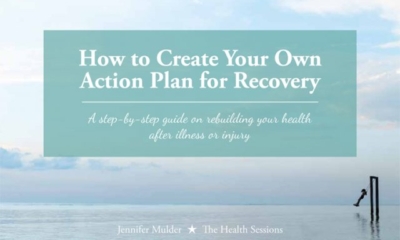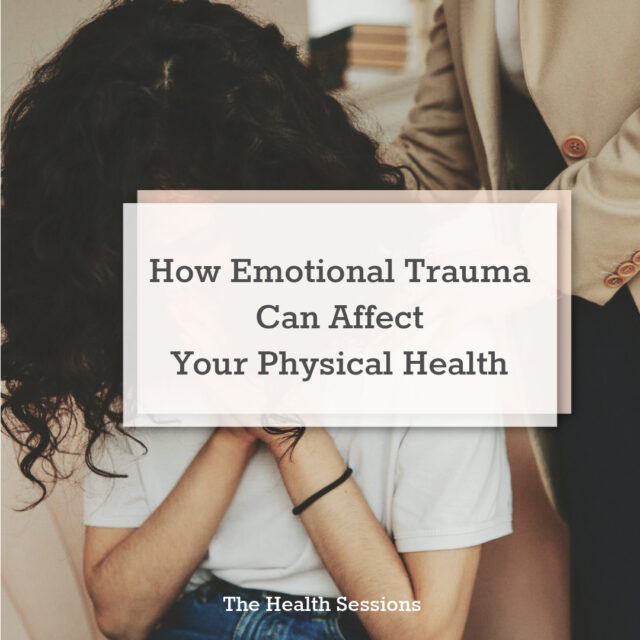7 Lessons I Learned About Recovery From Illness

This article is written by Frankie Wallace.
Stiff upper lip. Keep calm and carry on. Soldier through. Put on your big girl/boy pants. Let it go. Our society is filled with platitudes about trauma.
But while these catchy little tropes might make for a good bumper sticker, they certainly don’t make for a good — or healthy — life strategy. The truth is that, contrary to yet another popular cliche, time does not, in fact, heal all wounds.
Quite the contrary. Attempting to simply ignore or “move on” from your trauma is an almost guaranteed way to never truly heal — and the long-term effects, not only to your mental wellbeing but also to your physical health, can be devastating.
You deserve better. You deserve to live your life healed from your trauma. And it can be done.
It’s currently estimated that about 70%, or more than 200 million Americans, suffer from some form of trauma. But you don’t have to have grown up in a war zone or have been a victim of violent crime to be traumatized.
There are many types and many causes of trauma. Some relate to extraordinary and intensely frightening events, such as being involved in a severe car accident, experiencing a natural disaster, or witnessing a death or murder.
However, the most common causes of trauma derive not from these relatively rare events. Rather, the most traumatic events are often the more “ordinary” events, events that cause prolonged stress and pain.
These can range from divorce and separation to the loss of a job or home, to persistent and severe financial distress. Indeed, studies show that poverty can be a significant cause of mental illness, including showing strong links to post-traumatic stress disorder (PTSD).
This is perhaps not surprising, given that financial worries also rob you of your sense of security. When you’re unable to prepare financially for life events, whether it’s the car breaking down, the risk of getting hurt or sick at work, or saving for your kids’ college or your retirement, you’re living under a constant cloud of stress and anxiety. And that, over time, is traumatizing both to the brain and body.
It is not only the painful events experienced in adulthood that can be so traumatizing, of course. Traumas endured in childhood can have the most pervasive, severe, and longest-lasting effects. Just as with adults, the roots of childhood trauma run deep and wide. Financial strain in the household, conflict between parents or among other family members, the experience of community-based violence, childhood sickness — any of these events, and so many more, can leave a mark that you may carry in your heart, mind, and soul well into adulthood.

The reality is that there is no singular definition of what, exactly, “trauma” is. An event that may be traumatizing to one person may not be to another. That by no means reflects on the person’s strength or courage. It’s simply a reflection of differences in the experience and how it feels to the individual in the moment — and after.
But while definitions and origins of trauma often vary widely from one person to the next, there’s still significant similarity in how trauma affects sufferers. No matter what the particular cause or causes, the long-term effects of trauma can be wide-ranging and, often, unexpected.
The psychological impacts may be relatively unsurprising. Survivors may experience depression, anxiety disorders, or PTSD. They may experience hopelessness, anger, addiction, and self-isolation. And because of this, they may have trouble maintaining a job or building close relationships with friends, family, or intimate partners.
In the cases of children whose congenital illnesses prompted invasive surgeries in infancy or early childhood, medical trauma such as secondary chronic illnesses grow with them into adulthood. For example, adults with congenital heart defects (ACHD) who have had open heart surgery are more susceptible to migraine headaches. In and of themselves, the headaches are a chronic illness, but coupled with living with ACHD, the trauma is increased exponentially. If not treated, migraines in heart patients can lead to cardiac arrest and stroke. And so the vicious cycle continues.
Traumatized individuals, especially those who are traumatized by a chronic illness, are significantly more vulnerable to potentially life-threatening physical health impacts: an increase in your risk of cardiovascular disease, diabetes, stroke, chronic pain disorders, and even cancer.

As frightening as the research on the long-last impacts of trauma may be, there is hope. It is, indeed, possible to heal from traumatic events, even if they can never be forgotten. The first and perhaps most important step is to seek professional care.
Psychologists, psychiatrists, counselors, and clinicians specifically trained in trauma-informed care (TIC) have several evidence-based approaches that can be tailored to the individual needs, and experiences, of the patient. These range from talk therapy to the judicious use of psychotropics, to the use of more novel approaches, such as virtual and augmented reality (VR/AR) and eye movement desensitization.
In addition to professional care, it’s also important to integrate coping and recovery strategies into your daily life. A particularly effective tool is journaling. Journaling helps you to process your emotions and experiences, rather than avoiding them.
It is a safe and non-judgmental way to confront your truth, your pain, and integrate it on your terms into a healthy future and a healthy new you. For example, by using coaching questions to prompt your journaling, you can begin developing strategies for constructing a happier and more whole identity that neither denies your traumatic past nor is defined by it, an identity shaped and strengthened by a painful past, not submissive or subservient to it.

Trauma is, unfortunately, an aspect of the lives of hundreds of millions of Americans. But a traumatic past does not have to rob you of a terrific future. You can still have the happy, healthy, and fulfilling life you deserve. But it because not by ignoring or denying your trauma but by taking active steps to heal it.
If you enjoyed reading this article, you might also like: